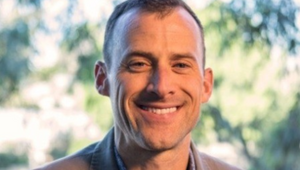
Why We Need to Spotlight Disabled Talent in the Talent Crunch

Why did it take a global pandemic to force employers to introduce remote and flexible working, when people with disabilities have been asking for hybrid working arrangements for years? The business world has not only been ignoring the needs of people with disabilities, it would appear that it’s been excluding them altogether.
Over eight million working-age adults in the UK, that is one in five of the working population, are classed as disabled. Yet only 52.7% were in employment in the second quarter of 2021 compared to 81% of non-disabled people. Additionally, disabled people have an employment rate that is 28.4 percentage points lower than non disabled people.
We can only hope the acceleration of workplace trends brought on in the last two years will change this. If the pandemic had a positive, it taught employers the importance of making their workplaces more inclusive and supportive of employees, with DE&I efforts moving into the foreground. A recent survey revealed 77% of workers with disabilities believe their employer has done a better job supporting them since the pandemic began. Of course, hybrid working is not just beneficial for people with disabilities, it’s improving work life for everyone, with mounting research showing that the flexibility to work from home has overall boosted employee satisfaction.
The talent crunch is one of many factors that should be kick-starting the advertising industry into making more effort to recruit people with disabilities – both seen and unseen - and ensuring they can advance into top jobs. There is a vastly underleveraged talent pool this industry could be drawing upon.
At RAPP, we are now certified as a Disability Confident Employer, a certification which recognises our commitment to ensuring equality, inclusivity and access in recruitment and supporting existing staff with disabilities. We have also partnered with disability inclusion charity Scope which is helping us with everything from making our recruitment practices more accessible to training all employees on disability inclusion.
Ensuring your workplace and recruitment processes support people with disabilities is a complex task that requires investment and dedication across all levels of the company. It also demands a deep understanding of the nuances and requirements for different disabilities. There is a common misconception that disability is visible, with obvious signifiers, such as being in a wheelchair. But around 80% of people with disabilities have hidden disabilities, according to Scope, spanning a myriad different conditions including autism, epilepsy, dyspraxia and chronic pain.
While RAPP is still at the early stages of the process, we are putting the structures in place to ensure we will be in the best position to recruit, retain, support and promote all people with disabilities, not just the ones you can see. This should be the ambition of every company in every sector. The ad industry is saying diversity and inclusivity is a priority but clearly so much more needs to be done within companies and as a collective to attract more people with disabilities into the industry.
We’re finally starting to see more representation when it comes to disability in TV and film, one recent example being the Oscar-nominated film CODA, in which three deaf actors — Marlee Matlin, Troy Kotsur and Daniel Durant — play deaf roles. Encouragingly, Netflix and the BBC have just launched a pioneering new partnership to develop and fund dramas featuring and created by disabled creatives.
When not ignoring people with disabilities, advertising frequently stereotypes them, portraying them as objects of pity or sources of inspiration. This damaging stereotyping comes about in large part because our industry has so few people with disabilities working within it. Where is our much-needed industry drive to get more people with disabilities working in all disciplines and across all levels? By collectively putting the work in to make this sector accessible and attractive to people with disabilities, we can finally drag our industry into the 21st century.












